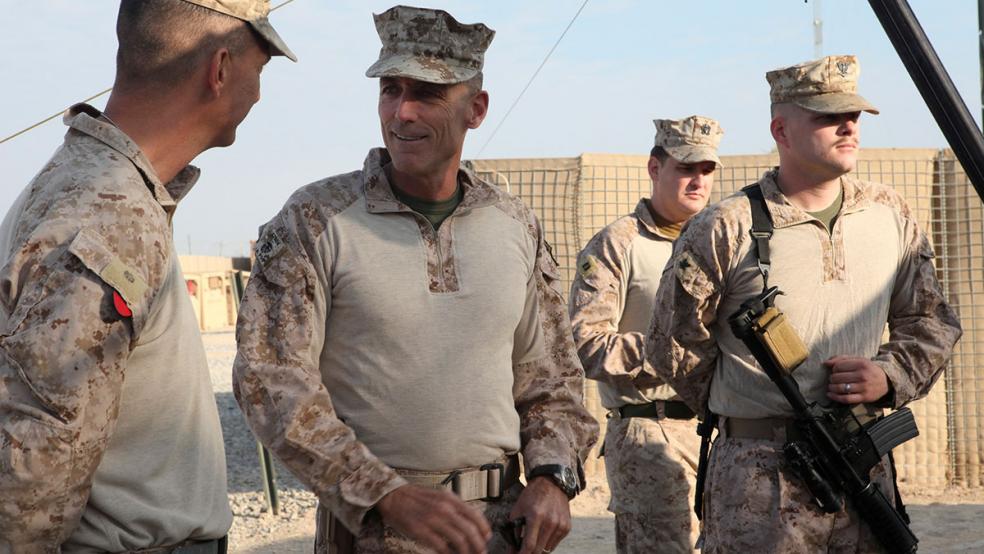When the United States ended the draft in 1973 and gradually shifted to an all-volunteer military, the great imponderable was whether this dramatic turnabout in the selection process would have a positive or negative impact on the overall quality of the military.
Although some observers predicted a steady slide in the aptitude and ability of the new generation of military service men and women, there was no way to gauge what it would mean when the military no longer could automatically draw from a large pool of young people with a broad range of education and socio-economic status.
Related: Army’s Plans to Cut 60,000 Could Be a Major Blow to the Economy
Now we are getting some answers.
A new study published late last week by the Brookings Institution of military testing going back to the late 1970s found that – after a brief dip -- the quality of the military force as a whole increased over time – and rather significantly.
In 1977, just 27.1 percent of new enlisted recruits met the military’s standard for being “high quality,” or possessed of a high school diploma and above-average intelligence relative to the U.S. population as a whole. Decades later, at the height of the Iraq and Afghanistan warfare, 60 percent of new enlisted recruits met the high quality standards.
Troubling, however, is that the same can’t be said about military officers – or at least those in the Marine Corps who were targeted for the research. An analysis of the test scores of 46,000 officers who took the Marine Corps’ required General Classification Test (GCT) found a “steady and significant” decline over the past 34 years.
Related: House GOP’s Creative Accounting Lifts Defense Budget
The GCT dates back to World War II, when it was developed to help classify incoming servicemen. Designed to have a mean score of 100, with a standard deviation of 20, the Marines used 120 as the bar for entry into Marine Officer Candidate School (OCS).
According to the new findings, 85 percent of those taking the test in 1980 exceeded a score of 120, which was the cut-off score for officers in World War II. However, in 2014, only 59 percent exceeded that score, according to the Brookings study. In short, over 34 years, the average score decreased by 6.6 percent, from 130.9 to 122.1.
The provocative research was conducted by Michael Klein, a professor at Tufts University’s Fletcher School of Law and Diplomacy in Boston, and Matthew Cancian, a graduate student at Fletcher and a former Marine who served in Afghanistan.

It is always dangerous to put too much stock in aptitude and intelligence tests in assessing the quality of military officers. The Marines, of course, have a long, proud history of military service, and many of their officers have displayed enormous courage and resourcefulness in leading their troops into battle.
Moreover, President Obama recently tapped Marine Gen. Joseph Dunford to become the next chair of the Joint Chiefs of Staff, the highest military position in government. Still, Klein and Cancian say their new findings are significant, and raise the concern about whether “today’s less qualified officer candidates will be tomorrow’s senior military leaders.”
Related: Obama to name Marine general to become top U.S. military officer
“What has been the impact of this drop in quality on the effectiveness of the military?” they wrote. “Answering this question is beyond the scope of this paper. Given the myriad studies associating performance with intellect, however, it is hard to imagine anything other than a seriously deleterious impact on the quality of officers and, by extension, on the quality and efficacy of the military.”
So what explains the disparity in the test score trends between rank-and-file military recruits and the supposed cream of the crop who are being recruited and groomed to become commissioned officers?
According to Klein and Cancian, the answer may be counter-intuitive: Only college graduates are considered by the Marines to become commissioned officers. But with so many more people going to college these days and getting four-year degrees, the overall quality of the college graduates may be in decline, they say.
Related: The Dirty Truth About the Marines’ Clean Audit
The authors note that the decrease of GCT scores over time correlates to an increase in the college participation rate during that same period. “College participation rate has increased and there’s the requirement you have to have a college degree to become an officer,” Klein said in an interview Monday. “So the pool has been expanded in a way where sort of less qualified people are in the pool.”
“We looked at other things too,” Klein explained. “Some people thought it might be because of the expansion of affirmative action. We actually find that years in which there are more incoming women or African-American officers, the average in those years, everything else being constant, is higher. And as for Hispanic officers, whatever contribution that makes to the lowering of scores is really minimal.”
“It really seems to be the college participation rate effect,” he concluded. “What happens is the pool of potential officer candidates is now larger but less strong.”





